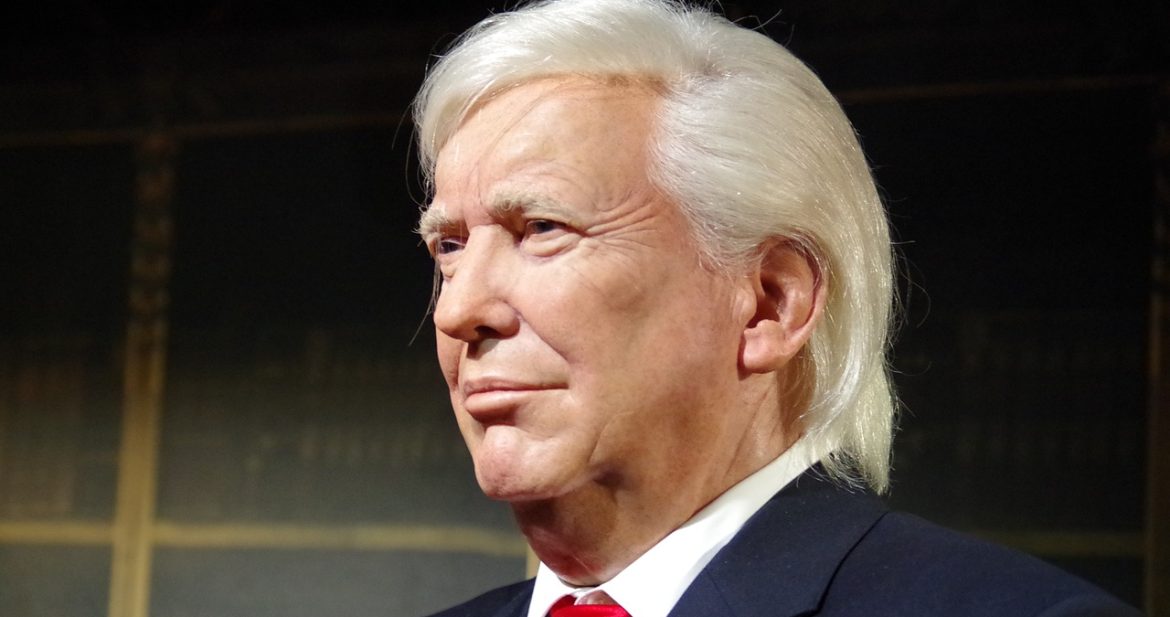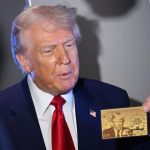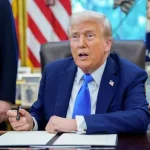An article by Mona Shah, an expert in EB-5, shedding light on what the EB-5 industry can expect from a second Trump presidency.
As Donald Trump once again ascends to the presidency, and the tumult of the recent election cycle subsides, a pressing question emerges: what can the EB-5 industry expect from a second Trump presidency? With strong anti-immigration rhetoric shaping the campaign, and memories of Trump’s first term that was characterized by policies that posed challenges for both immigrants and the immigration industry, Trump’s pro-business approach and recent shifts in the economic landscape, with a promise to shake up the regulatory landscape, especially concerning the Securities and Exchange Commission (SEC), his vision could create fertile ground for investment and innovation.
A Mixed Legacy: Challenges from the Past
During his former tenure, Trump’s Administration implemented several policies that affected the EB-5 program. One of the most significant actions was his July 14, 2020, executive order that ceased recognizing Hong Kong as a distinct, autonomous region. This change pushed many Hong Kong-born investors into the Chinese Mainland’s lengthy waiting lines for visas, causing a notable decline in EB-5 applications from that region. The impact was felt widely, as Hong Kong has historically been a major source of investment for the program.
Additionally, Trump’s policies regarding immigration adjudications led to delays in processing EB-5 petitions. The removal of deference in immigration adjudications meant that many petitions faced increased scrutiny, prolonging approval times and creating uncertainty for investors who had committed their capital into EB-5 ventures. The EB-5 Reform and Integrity Act of 2022 (RIA) rectified this issue. However, countries like Iran lost their E-2 Treaty Trader status and experienced particularly long delays at consulates, further complicating the investment landscape. Moreover, the controversial travel ban targeting predominantly Muslim countries created an atmosphere of fear and uncertainty for many potential investors. This policy not only affected individuals from those nations but also sent a chilling message to foreign investors contemplating U.S. residency through investment. The confluence of these factors may have deterred some high-net-worth individuals from pursuing opportunities within the EB-5 program.
The Promise of Smart, Merit-Based Immigration
Despite these challenges, Trump’s vision for a merit-based immigration system could appeal to investors seeking a more streamlined pathway to residency. His proposed points system emphasizes skills, economic contributions, and investment potential, aligning well with the interests of high-net-worth individuals looking to invest in the U.S. economy. As Trump will likely focus on addressing illegal immigration, there is a potential for reforms that could attract investors eager for a more efficient application process.
The possibility of a merit-based immigration aligns with global trends, where countries are increasingly seeking to attract skilled immigrants who can contribute to their economies. This shift could enhance the attractiveness of the U.S. as a destination for investment immigration, particularly for those looking to leverage the EB-5 program to secure permanent residency.
A Boon for Entrepreneurship and Investment: Deregulation & Tax Cuts
Trump’s return to the presidency is poised to rejuvenate the entrepreneurial landscape in the United States. His administration’s commitment to lowering corporate taxes and reducing regulatory burdens could create a more favorable environment for business growth. Lowering corporate taxes not only benefits existing businesses but also incentivizes foreign investors to establish new ventures in the U.S., providing a dual advantage for those considering the EB-5 program.
Historically, Trump’s administration pushed through significant tax reforms that resulted in a multitrillion-dollar tax cut, primarily benefiting corporations and high-income earners. Many analysts believe that similar strategies could be revived in his second term, further enhancing the U.S. as an attractive destination for foreign investment. As potential investors consider their options, the prospect of a robust, pro-business environment under Trump may sway their decisions toward pursuing residency through investment.
Moreover, Trump’s emphasis on deregulation could streamline processes for foreign investors looking to establish businesses in the U.S. By reducing red tape and simplifying the regulatory landscape, with the Fraud Detection and National Security (FDNS) in place to protect the integrity of the immigration system, the Trump administration could facilitate quicker project approvals and operational setups, making it easier for foreign entrepreneurs to thrive in the U.S. market.
Stock Market Surge: The Investor’s Reaction
The market’s response to Trump’s election highlights the optimism surrounding his policies. Following the announcement of his return to the presidency, stocks soared to all-time highs. U.S. yields jumped, and the dollar experienced its best day since 2022, sending a clear message: investors are eager for the pro-business policies that characterized Trump’s previous administration.
“We are all celebrating with Wall Street as we have finally someone in the office that values entrepreneurship. President Trump is attuned to businessmen and entrepreneurs – we will for sure see in his presidency the will to encourage legal immigration, particularly of those with millions in their pockets, ready to invest and great new jobs rather than the immigrants crossing the border with empty pockets. Logically it’s better to take on newcomers who have been well vetted and who we know their backgrounds.”
~ Sam Bayat, Founder of Bayat’s Legal Services, based in Dubai
The correlation between political stability and market performance cannot be overstated. Investors often seek to minimize risk and maximize returns, and a Trump presidency could restore confidence in the markets. The prospect of renewed tax cuts and deregulation could lead to increased capital flows into the U.S., making it an appealing destination for foreign investors.
Trump vs. the SEC
Since taking the helm, Gensler has aggressively pursued regulatory actions against a myriad of businesses, especially in the cryptocurrency sector, which has led to a chilling effect on innovation. The SEC has filed numerous lawsuits against crypto projects and EB-5 projects, alleging violations of securities laws, creating an environment of uncertainty for entrepreneurs and investors alike. Many companies have chosen to leave the U.S. market, citing increasing regulatory burdens as a primary reason for their departures.
Donald Trump made a campaign promise to “fire Gary Gensler” on day one of his administration, to the raucous approval of a packed arena at this year’s Bitcoin Conference, a move that could signal a significant shift in the SEC’s approach to regulation. By advocating for a lighter touch in oversight, particularly in the burgeoning fields of cryptocurrency and investment migration, Trump aims to create an environment conducive to growth and innovation.
Crypto: A New Frontier for Investors
The cryptocurrency landscape is another area where Trump’s policies may influence foreign investment. Following his election win, Bitcoin experienced a significant surge in value, reflecting a growing interest in digital assets. Trump’s proactive stance on regulating cryptocurrency—evident from his participation in the Bitcoin conference in Nashville—signals a recognition of its importance within the investment sphere.
Trump’s endorsement of Senator Cynthia Lummis, a leading advocate for cryptocurrency, further cements his commitment to fostering a favorable environment for crypto investments. The proposal to establish a federal Bitcoin reserve could attract foreign investors looking to diversify their portfolios and capitalize on the booming cryptocurrency market. As the SEC) moves towards approving Bitcoin exchange-traded funds (ETFs), the regulatory landscape is evolving. This evolution presents new opportunities for investment that align with Trump’s policies, creating a more inviting climate for foreign investors interested in the U.S. market.
Furthermore, the rise of cryptocurrencies has the potential to transform traditional investment paradigms, allowing foreign investors to engage with U.S. markets in innovative ways. The integration of cryptocurrencies into mainstream finance could lead to increased participation from global investors. This could benefit crypto investors seeking EB-5 investment by regulating the market, finding a solution to a lawful path of funds.
Global Alliances: A Magnet for Investment
Trump’s strong relationships with world leaders, including Saudi Crown Prince Mohammed bin Salman and Turkey’s President Recep Tayyip Erdogan, could also play a crucial role in driving investment into the U.S. These ties may facilitate increased foreign direct investment as global investors look to the U.S. for stability and growth opportunities.
For instance, Saudi Arabia has been actively seeking to diversify its economy away from oil dependence, and U.S. investments could play a significant role in that strategy. Similarly, Turkey’s strategic position as a bridge between Europe and Asia makes it a valuable partner for U.S. businesses looking to expand their global footprint.





